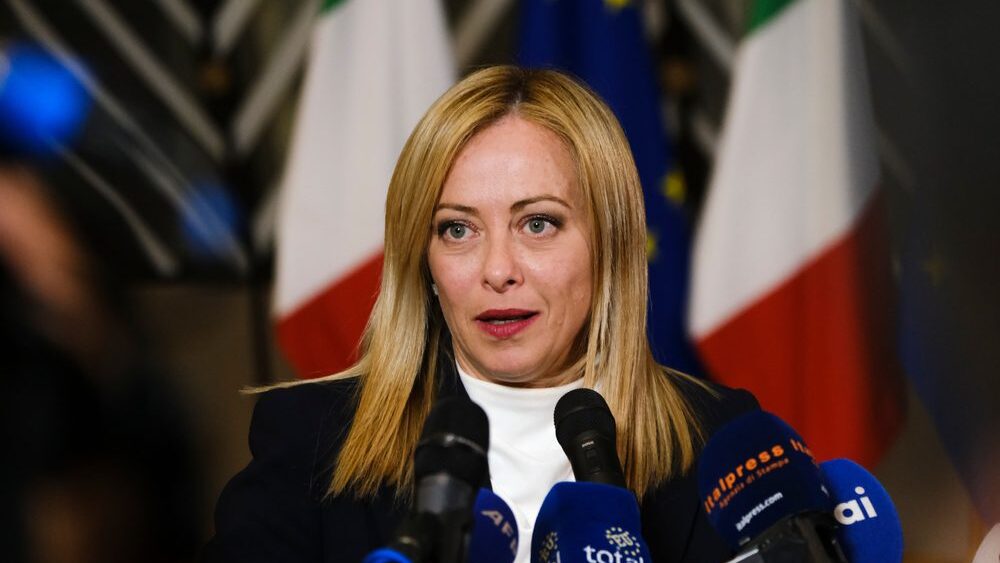
Giorgia Meloni
Photo: Alexandros Michailidis / Shutterstock.com
Italian Prime Minister Giorgia Meloni this week indicated a major policy shift regarding Italy’s support of the EU’s controversial euro zone bailout fund. After staunchly opposing Italy ratifying the fund while in opposition, Meloni in her end-of-year press conference appeared to be open to changing her position if the “obsolete” fund could be made “more efficient.” This is despite vocal objections from within her own party and her own previous disavowals of the financial support mechanism while in opposition.
A majority of MPs from Meloni’s own ruling Fratelli d’Italia party last month rejected a left-wing resolution for Italy to ratify the European Stability Mechanism (ESM), a fund launched in 2012 by Eurocrats to allow ailing euro zone economies to tap into financial liquidity on the open market provided they make the required fiscal changes.
Italy has irked Brussels by being the only euro zone nation not to ratify the ESM as many Italians fear it would force Rome to restructure its debt repayments at the behest of northern European creditors.
The dispute over the ESM has forced an uneasy split among the three government parties in Rome, with the nationalist Lega party firmly against it as an affront to Italian sovereignty.
Defending the decision by the Italian Chamber of Deputies to reject the ESM, Lega leader Matteo Salvini stated that his country would “not risk paying for the bailout of foreign banks” a sentiment shared by many within Meloni’s party itself.
Salvini’s comments put him at odds with Meloni who, in her end-of-year press conference in late December, outlined plans to circumvent stiff parliamentary opposition by tweaking the terms of the ESM to make it more favourable to Italy.
Meloni has expressed hostility to the ESM even in the early months of her premiership, and famously making a public ‘blood oath’ on live TV against any Italian participation in the scheme shortly before she was elected in 2022.
To date, the Italian PM has not articulated her precise alternative to the current ESM arrangement, which has been utilised before by other struggling euro zone nations such as Greece, Ireland, Portugal, and Spain—subject to the condition that they make budgetary cuts.
Following the euro zone crisis, Rome’s astronomical €2.9 trillion worth of public debt is seen by many commentators as a major political weakness and a way for the EU to keep Italy in check, at a time when the Meloni government so far has failed to live up to its electoral promise of tackling illegal immigration.
The dispute over the EMS is reminiscent of the fallout from Meloni’s botched windfall tax on bank profits last year, resulting in a temporary plunge in the Italian stock market and coalition tensions with Salvini and his Lega party.
Since taking power in 2022, Meloni has endured intense criticism from the Right—despite maintaining consistently high polling numbers—as her administration attempts to balance its populist message with a reformist and conciliatory attitude towards the EU.
